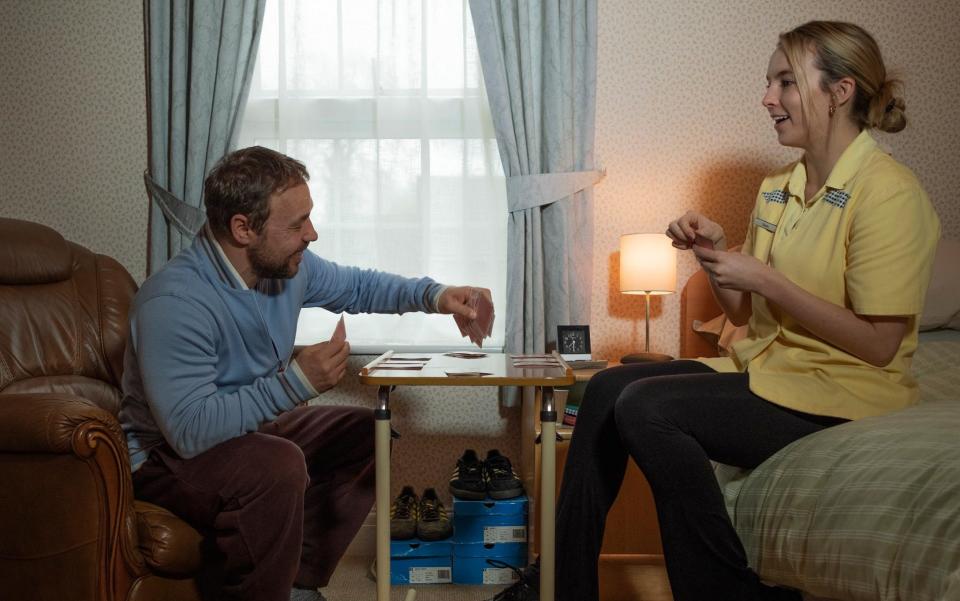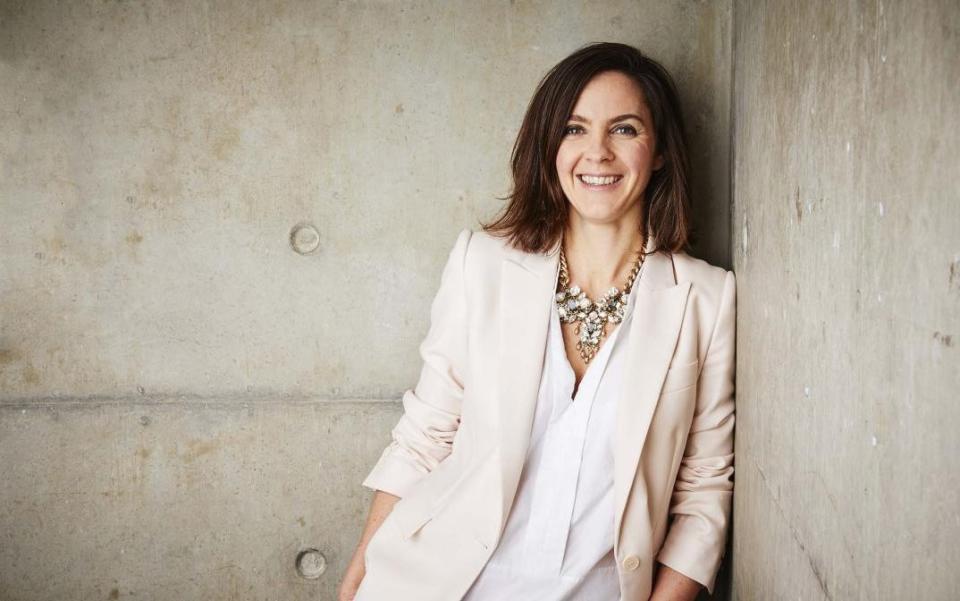Channel 4’s Scrapped Sale Sparks Widespread Relief, But Producers Fear Sting In Tail
- Oops!Something went wrong.Please try again later.
- Oops!Something went wrong.Please try again later.

The British film and TV industry breathed a collective sigh of relief today after the government signalled its intention to scrap a planned $1.2B sale of Channel 4, one of the crown jewels of UK broadcasting.
Deadline understands that UK ministers could formally announce a U-turn over Channel 4 privatization as soon as tomorrow, with the decision all-but rubber-stamped by Rishi Sunak, the prime minister.
More from Deadline
Kelly Monteith Dies: Comedian & TV Host Known For Self-Titled BBC Series Was 80
'Wednesday' Notches Second Week Atop Nielsen U.S. Streaming Chart With Record Viewership
Related Story
Channel 4 Sale Off The Table After Culture Sec Tells Prime Minister: "There Are Better Ways To Secure Sustainability"
Related Story
Kelly Monteith Dies: Comedian & TV Host Known For Self-Titled BBC Series Was 80
Related Story
'Wednesday' Notches Second Week Atop Nielsen U.S. Streaming Chart With Record Viewership
In a letter leaked to The News Agents, a daily podcast hosted by Emily Maitlis, UK culture secretary Michelle Donelan said: “Pursuing a sale at this point is not the right decision and there are better ways to secure Channel 4’s sustainability.”
The decision comes 18 months after the government first floated the idea of privatizing Channel 4, during which time the UK television and film business has mounted a vociferous campaign to keep the broadcaster in public hands.
Channel 4 has been owned by the government since it was established by Margaret Thatcher in 1982. The not-for-profit broadcaster has a unique remit to foster growth in the UK’s production sector — commissioning all of its programming from independent producers — and take risks on innovative content.
Industry figureheads celebrated the thought of this remit being protected. John McVay, chief executive of producer trade group Pact, said he was “very pleased” by the decision.
“The government has made the right decision to hit the stop button on Channel 4 privatisation. It was always a solution in search of a problem that didn’t exist,” he said. “Channel 4 has a unique position in the broadcasting ecosystem. Its commissioning model has supported British production companies from its inception, providing jobs for thousands of people across the UK. Moving to private ownership would have endangered this.”
Leo Pearlman, a founder and managing partner of Late Late Show producer Fulwell 73, celebrated but said it is “quite remarkable that undoing something that everyone who actually works in the creative industry knew was patently misguided is seen as a win”. When Donelan’s predecessor Nadine Dorries consulted with the public on the plans, 96% of around 50,000 respondents were against a sale.

Sarah Dollard, the Doctor Who and Bridgerton writer, summed up the mood more succinctly. “Thank f**k for that,” she tweeted. “Happy happy HAPPY 2023,” echoed Jack Thorne, the writer behind His Dark Materials and Help, the Jodie Comer pandemic drama that broadcast on Channel 4 and streamed on Netflix.
“Logic prevails,” added Ben de Pear, the former editor of Channel 4 News and executive producer of For Sama, the Oscar-nominated documentary. “What a huge waste of time the whole exercise was. A low point in the culture wars that hopefully doesn’t need to be repeated.”
Kirstie Allsopp, presenter of Channel 4’s long-running property show Location, Location, Location, said: “Selling was always a destructive, pointless project that should be forgotten forever.”
Privatisation Gives Way To In-House Production Battle
The relief over Channel 4’s abandoned sale was not unqualified, however, as the network’s celebrated remit could be about to change dramatically. As part of efforts to ensure Channel 4 remains commercially sustainable in the age of Netflix, Donelan said in her letter that the company will be allowed to produce and own shows for the first time in its 40-year history.
The relaxation of Channel 4’s so-called publisher-broadcaster model could be a blow to producers, who have benefited from the broadcaster’s duty to commission content from third parties. Ministers will have to change the law to achieve their aim, but Donelan said this would be done in consultation with the UK’s world-leading production sector.
A senior industry source said talks were already underway with ministers, with producers pushing for Channel 4’s “indie quota” — the proportion of its £700M ($843M) content budget spent with truly independent production companies — to be increased from its current level of 25%.
“This is a bittersweet moment,” said the person with knowledge of the talks. “Privatization would have been a disaster for everyone, but now the battle is to protect the indie sector. We will get in the room with the government to secure the best possible deal.”
Other producers echoed this sentiment. “Independent production companies must be protected at all costs,” said Fulwell’s Pearlman. “Young talent, in particular from the regions, must be given every chance to grow and new voices from all sectors of society must be encouraged and supported.”
Matt Graff, managing director of Zig-Zag Productions, producer of Amazon’s Sonsational, added: “While it’s clear that the broadcaster needs to evolve if it’s going to survive and thrive alongside the new streaming giants and changes in viewing habits, it needs to do this in a way that not just embraces its remit but takes it further by providing a culturally challenging alternative to the UK terrestrials, the cable networks and the global streamers.”
Industry sources said Channel 4 would likely welcome the opportunity to produce its own programming as it looks to grow its revenue. A person familiar with the matter said it would be an evolution of existing Channel 4 strategies including the Indie Growth Fund, which allows Channel 4 to invest in small and diverse production companies. Previous Growth Fund companies include Eleven, which makes Netflix hit Sex Education.

Claire Enders, a media analyst who liaises with the government on broadcasting policy, argued that Channel 4 would reinvest profits made from selling shows into new content. “In a way, it would be more beneficial for Channel 4 to retain and reinvest rights than automatically give them away to producers who don’t all require that kind of assistance,” she added.
Channel 4 declined to comment on the leaked government email about privatisation. Alex Mahon, the broadcaster’s chief executive, told staff to keep quiet until an announcement has been made.
“You may have read reports that the government is no longer intending to privatise Channel 4,” she said in an email. “There can be no certainty about the outcome of our discussions with the government unless and until a formal announcement is made by the secretary of state.”
A government spokesman said: “We do not comment on speculation. The Department for Digital, Culture, Media and Sport secretary of state has been clear that we are looking again at the business case for the sale of Channel 4. We will announce more on our plans in due course.”
Best of Deadline
TV Cancellations Photo Gallery: Series Ending In 2023 & Beyond
Hollywood & Media Deaths In 2023: Photo Gallery & Obituaries
2023 Premiere Dates For New & Returning Series On Broadcast, Cable & Streaming
Sign up for Deadline's Newsletter. For the latest news, follow us on Facebook, Twitter, and Instagram.

